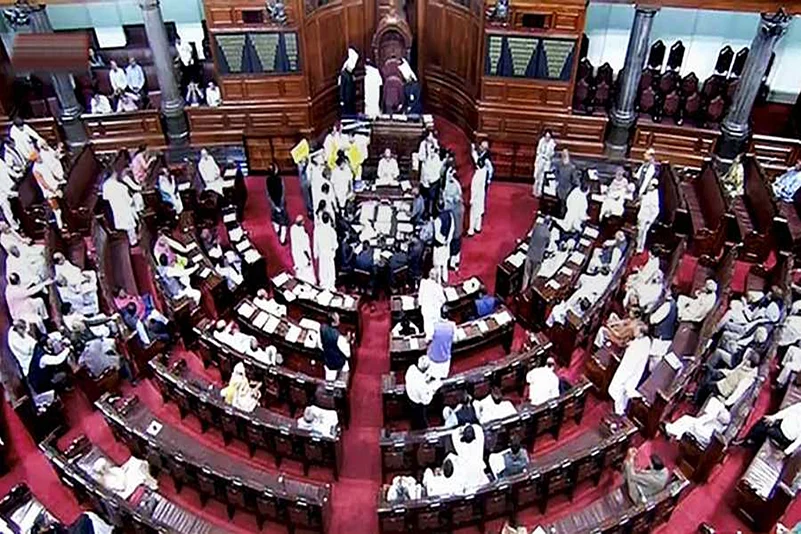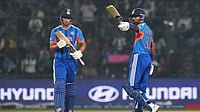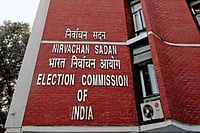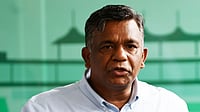The ruling NDA dispensation further consolidated its position in Rajya Sabha crossing the 100-mark after nine BJP candidates, including Union Minister Hardeep Singh Puri, were elected unopposed to the Upper House on Monday.
On the other hand, the Congress, which dominated the Upper House for a long time, is now down to 38 seats - its lowest ever tally - in the 242-member House after it lost two more seats to the BJP in the current elections.
Out of the 11 Rajya Sabha seats up for grabs- 10 from Uttar Pradesh and one from Uttarakhand - nine were won by BJP candidates, including Union Urban Development Minister Puri, taking the party's tally to 92 seats.
It was a gain of six as three of the candidates were re-elected. NDA constituent JD(U) has five seats.
The ruling alliance also has some smaller parties like RPI-Athawale, Asom Gana Parishad (AGP), Mizo National Front (MNF), National People's Party (NPP), Naga People's Front (NPF), Pattali Makkal Katchi (PMK) and Bodoland People's Front (BPF), which have one seat each, totalling seven seats.
The NDA tally will now be 104 and it can get the support of four nominated members. The half-way mark is 121 in Rajya Sabha whose current strength is 242.
The ruling alliance can also seek support on crucial bills from some friendly parties like the AIADMK with nine MPs, BJD with nine MPs, TRS with seven MPs and YSRCP which has six MPs in Rajya Sabha.
These parties have been extending issue-based support to the NDA.
The Samajwadi Party has lost three seats in these RS polls in Uttarakhand and UP and the BSP lost one seat.
With the ruling combine further strengthened, it will be easier for the government to push its legislative agenda in the Upper House, where the NDA did not enjoy a majority.
Those elected unopposed today included BJP's Neeraj Shekhar, Arun Singh, Geeta Shakya, Haridwar Dubey, Brijlal, BL Varma and Seema Dwivedi; Samajwadi Party's Ram Gopal Yadav; and BSP's Ramji Gautam.
The term of the newly elected members will be from November 25, 2020 to November 24, 2026.
High drama was witnessed on the last day of filing of nomination papers on Tuesday with Samajwadi Party- supported independent candidate Prakash Bajaj entering the fray minutes before the deadline.
His papers were, however, rejected during scrutiny, but not before four signatories of the BSP candidate Ramji Gautam's nomination papers claimed that their signatures were forged and gave an affidavit to the Returning Officer in this regard.
Acting tough, BSP president Mayawati suspended these four and three others who had allegedly met Samajwadi Party president Akhilesh Yadav after coming out in the open against the party leadership.
There are 31 Rajya Sabha seats from Uttar Pradesh of which 22 will now be with the BJP, five with the Samajwadi Party and three with the BSP. Congress will have only one seat.
In Uttarakhand, senior BJP leader Naresh Bansal was declared elected unopposed to Rajya Sabha.
Bansal's election was a mere formality as there was no challenger with the BJP having 57 out of the total 70 seats.
Bansal replaces Congress' Raj Babbar whose tenure in Rajya Sabha ends on November 25.


























